The EASL Mentorship Programme was created to guide young scientists and clinicians through a crucial stage in their career path by encouraging scientific exchange and fostering personal developmental relationships with a more experienced and knowledgeable hepatologist or senior scientist.
About EASL Mentorships
This Mentorship Programme offers young scientists or clinicians the opportunity to receive support from an international and independent experienced senior colleague. By matching mentees with a senior hepatologist or senior basic scientist as mentor, the Mentorship Programme aims at enhancing scientific exchange and personal developmental relationships. This is achieved by supporting and advising junior scientific researchers and junior clinicians in their career choices and scientific growth.
EASL offers two types of mentorship formats to accommodate different preferences and availabilities:
- Classic (face-to-face) mentorship – mentor and mentee meet in person during EASL Congress, with the possibility of organising a visit to the mentor’s institution during the year.
- Virtual mentorship – mentor and mentee connect exclusively online, through regular (monthly) meetings and ongoing communication.
Benefits for Mentees:
Classic Mentorship
- Personal development
- Monthly virtual meetings between Mentor and Mentee
- Complimentary registration to EASL Congress
- EUR 800 bursary to support travel and accommodation to attend EASL Congress
- Up to EUR 1,200 EUR financial support to visit Mentor’s institute or support other beneficial educational activity as agreed with Mentor.
Benefits for Mentees:
Virtual Mentorship
- Personal development
- Monthly virtual meetings between Mentor and Mentee
- Complimentary online registration to EASL Congress
Discover the Mentors for 2026

Emma Andersson
Karolinska Institutet, Stockholm, Sweden
Mentorship format:
- Classic and/or Virtual
Hepatology area of interest:
- Basic Science
Reasons why you should choose Emma Andersson as your mentor:
- Scientific guidance
- Networking opportunities
- Specific technical or research expertise
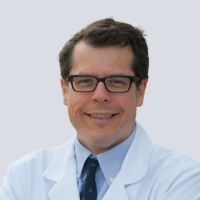
Matias A Avila
CIMA-University of Navarra, Pamplona, Spain
Matias A Avila is Professor of Biochemistry and Molecular Biology at the University of Navarra, specialized in the investigation of mechanisms involved in liver regeneration, fibrogenesis and tumorigenesis.
Between 1989–1992, I completed my Ph.D. (Pharm. D) in the Institute for Biomedical Research (IIB, CSIC, Madrid). I was a postdoctoral fellow at the comprehensive cancer center of Georgetown University, Washington D.C., I investigated oncogenic pathways induced by chemical carcinogens and ionizing radiation. In 1995, I returned to the IIB (CSIC) before joining the University of Navarra as Assistant Professor in 1997. Between 1995–2004, my research focused on alterations of one-carbon metabolism in liver disease and hepatocarcinoma, pioneering studies on the regulation of enzymatic activities by free radicals and nitric oxide, as well as the epigenetic control of gene expression by extracellular signals. Since 2004, I have uncovered novel mechanisms regulating liver regeneration, fibrogenesis, and carcinogenesis mediated by growth factors, cytokines, and bile acids. Over the past decade, my work has centered on epigenetic drivers of liver cancer and the identification of therapeutic targets. More recently, I have advanced liquid biopsy approaches for hepatobiliary malignancies, advocating bile as a sensitive diagnostic matrix, and contributed to translational studies validating mRNA-based therapies for rare liver metabolic diseases.
My research, published in leading international journals and through collaborations worldwide, has been continuously funded for over 23 years by ISCIII, the Spanish Ministry of Science, and competitive international programs. I have mentored numerous early- and mid-career scientists well as 20 Ph.D. students.
We also collaborate with the industry through research agreements. Among them, the US companies Moderna Therapeutics and Epizyme, and the Barcelona-based biopharmaceutical company Kintsugi Therapeutics, in which I am a member of their Scientific Advisory Board (SAB). I am a member of the Scientific Committee of the University of Navarra Cancer Center (CCUN), accredited by the Spanish Association Against Cancer (AECC). I was member of the governing boards of the European and the Spanish Associations for the Study of the Liver (EASL, 2011-14, AEEH, 2015-17). Currently, I am in the SABs of: i) Institut Cochin, Paris, France; ii) Centre de Recherche sur l’Inflammation of the University Paris Cité and Inserm (CRI), Paris, France; iii) HUNTER consortium funded by CRUK, AIRC, and AECC, UK, Italy, Spain; and iv) DELIVER Program for academic and clinical health research, Inserm and ANR, France. I am Associate Editor (AE) of the Gut journal (2011-19, and 2023-today). Editorial Boards: From 2019 to 2023 I was AE of the Journal of Hepatology (EASL). I am, or have been, member of the Editorial Boards of major journals in the field: Gastroenterology, Hepatology, Journal of Hepatology and Liver International. Grant evaluation: I regularly evaluate INSERM research units (France), and research grants for: AIRC (Italy), ANR, AIRC and AFEF (France), CRUK (UK), Israel Science Foundation, PHRT (Switzerland) and the ERC. I am Expert evaluator of The National Centre for Research and Development (NCBR), Poland. I regularly participate in the evaluation panels for the Ministry of Science and Innovation (Spain).
Mentorship format:
- Virtual
Hepatology area of interest:
- Liver Tumours
- Basic Science
- Metabolism, Alcohol and Toxicity
Reasons why you should select Matias A Avila as your mentor:
- Scientific guidance
- Networking opportunities
- Specific technical or research expertise
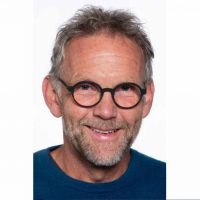
Palle Bager
Aarhus University Hospital, Denmark
I have been engaged in liver nursing for several decades and currently serves as a Clinical Nurse Specialist at Aarhus University Hospital, Denmark. Since 2017, I have also held the position of Associated Professor at Aarhus University, Denmark.
I earned my RN qualification in 1987, Diploma in Health Education in 2002, Master of Public Health in 2007, and a PhD degree in 2014. Between 2019 and 2022, I served as board member of EASL – Nurses and AHP’s Task Force.
My research interests encompasses a wide range of topics, including fatigue, anemia, Health related Quality of Life, health literacy, healthcare service development, nutrition and adherence. I have contributed to > 50 research papers predominantly addresses healthcare issues for patients with liver cirrhosis or IBD. Moreover, I focusses on addressing inequality in health, exploring e-health and men’s health issues.
Mentorship format:
- Classic and/or Virtual
Hepatology area of interest:
- General hepatology
- Cirrhosis and its complications
- Public health
- Alcohol
Reasons why you should choose Palle Bager as your mentor:
- Career advice (especially for nurses and other AHP’s).
- Research experience.
- Establishing networks.
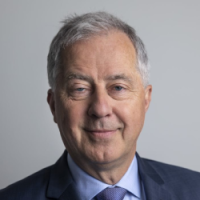
Ulrich Beuers
Amsterdam, the Netherlands
Ulrich Beuers is Professor emeritus at the Amsterdam University Medical Centre, Hepatologist & Gastroenterologist and Internist.
After his medical studies in Gent, Berlin and Freiburg (1976-1983) and his neuropharmacological dissertation he underwent postdoctoral training in Biochemistry at the University of Göttingen (1984-1986), clinical training as Internist and Gastroenterologist & Hepatologist (1986-1995) at the University of Munich where he completed his ‘habilitation’ (1994). He spent a research period (1991-1993) and a sabbatical (2015) at Yale University in New Haven and became a Professor of Internal Medicine in 2001 in Munich and Full Professor of Gastroenterology & Hepatology (2007) and Chair Hepatology (2010-2023) in Amsterdam. Major research interests were/are the pathogenesis and treatment of immune-mediated cholestatic liver diseases and their clinical manifestations (1987-2026). Ulrich Beuers published/coauthored >700 articles (WoS) and has been invited speaker in 35 countries. He served since 1997 for the Journal of Hepatology in several Editorial Teams as Associate Editor. Ulrich Beuers chaired the Netherlands Association for the Study of the Liver (NASL; 2012-2018) and the Netherlands GI & Hepatology education committee (2014-2017). He was member of the EASL Governing Board (2018-2023) and EASL Educational Councillor (2019-2023). He chaired/co-chaired European Clinical Guidelines for cholestatic liver diseases and IgG4-related disease and contributed to others (PBC, PSC, Pregnancy). He mentored 40 doctoral fellows. He and his fellows received numerous national/international scientific awards for their work among which the EASL Recognition Award 2025.
Mentorship format:
- Classic
Hepatology area of interest:
- Immune-mediated and cholestatic liver disease
Reasons why you should choose Ulrich Beuers as your mentor:
- Scientific guidance
- Networking opportunities
- Career advice
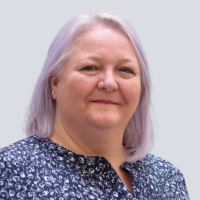
Michelle Clayton
Clinical/Liver Nurse Educator at the supraregional liver transplant centre in Leeds, UK.
Michelle Clayton has worked as a liver nurse since 1991 and is currently a Clinical/Liver Nurse Educator at the supraregional liver transplant centre in Leeds, UK. Michelle has a very strong track record in liver nurse leadership having developed and led the liver nurse community in both the United Kingdom and the EASL Nurses & AHP taskforce.
She works at national and strategic level on behalf of the liver nurse community which has allowed her to develop a rounded set of leadership, communication and influencing skills. Michelle also has a strong background in education having worked as a lecturer at the University of Leeds; thus, ensuring her educational and teaching skill set is robust, rigorous, and quality assured, whilst being flexible and tailored to the individual’s needs.
Mentorship format:
- Classic and/or Virtual
Hepatology area of interest:
- General hepatology
- Cirrhosis and its complications
- Liver transplantation
- Leadership and education
Reasons why you should choose Michelle Clayton as your mentor:
- Liver Nurse leadership – expertise in creating and developing robust liver nurse organisations at national and European level.
- Liver Nurse education – expertise in teaching all aspects of liver disease and liver transplantation and how to develop robust educational programmes and resources.
- Liver Nurse networking – breadth of clinical contacts across Europe and the World which can help to support development, collaboration, and networking opportunities.
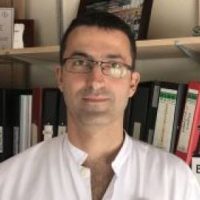
Alejandro Forner
Hospital Clinic of Barcelona, Spain
Alejandro Forner, MD, earned his medical degree at Universidad Miguel Hernández, Alicante, Spain, in June 1999, obtaining the Extraordinary Licensure Award for the best medical school academic expedient. He is board certified in gastroenterology and hepatology through the Liver and Gastroenterology Unit, Hospital Clinic of Barcelona, Barcelona, Spain, where he worked from 2001 to 2005. Since 2005, he has worked in the Barcelona Clinic Liver Cancer (BCLC) Group. Currently, he is Consultor-1 of Hepatology at the Liver Unit of the Hospital Clinic and Assistant Professor of Medicine at the University of Barcelona.
Dr. Forner’s clinical activity is focused on the care of patients with cirrhosis and hepatocellular carcinoma (HCC). His investigational fields are the early diagnosis of HCC (on which he wrote his doctoral thesis), the treatment of early HCC and the diagnosis and management of cholangiocarcinoma (CCA).
Dr. Forner has authored several original articles, editorials, and reviews about HCC and CCA in “peer reviewed” journals (h-index: 45) He is a reviewer for the most cited peer-reviewed journals in hepatology, including Hepatology, Gut, Journal of Hepatology, and Liver Transplantation, and in oncology (Lancet Oncology, Clinical Cancer Research), and is Co-Editor-in-Chief of Liver International. He has served as author of the Spanish Guidelines for HCC management (2009, 2016 and 2020), and he has been panellist of the EASL-Clinical Practice Guidelines of Benign tumours, released in 2016, Hepatocellular carcinoma, published in 2018 and intrahepatic cholangiocarcinoma, released in May 2023. Finally, Dr. Forner is currently the Scientific Secretary of the AEEH since March 2025
Mentorship format:
- Classic and/or Virtual
Hepatology area of interest:
- Liver Tumours
Reasons why you should choose Alejandro Forner as your mentor:
- Scientific guidance
- Networking opportunities
- Career advice
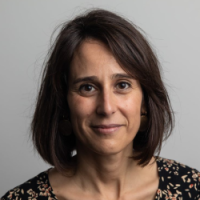
Virginia Hernández-Gea
Hospital Clinic of Barcelona, Spain
I am an interventional hepatologist specializing in the management of portal hypertension and vascular liver diseases. My clinical expertise includes advanced interventional procedures such as TIPS, HVPG measurement, and transjugular liver biopsy.
Alongside my clinical work, I lead a translational research laboratory focused on elucidating the role of the endothelium in liver disease and the pathophysiology of portal hypertension. Trained in one of the few dedicated units worldwide, I have developed extensive expertise in both clinical and experimental hepatology. I maintain an active international collaboration network across Europe and abroad, leading multiple research initiatives at international level. In addition, I have been involved in academic mentorship for several years, having supervised more than ten doctoral theses and trained numerous fellows in hepatology and interventional techniques.
Mentorship format:
- Classic and/or Virtual
Hepatology area of interest:
- Cirrhosis and its complications
Reasons why you should choose Virginia Hernández-Gea as your mentor:
- Extensive international network offering opportunities for collaboration and professional development.
- Scientific guidance across both clinical and translational research
- Advanced clinical and technical expertise in the management of portal hypertension and vascular liver diseases.

Kathryn Jack
Nottingham, United Kingdom
I work as a clinical academic nurse, hold an NIHR senior research practitioner award, and have expertise in viral hepatitis and prison research, particularly using qualitative / mixed methods)
Dr Kathryn Jack is a Clinical-Academic senior nurse at Nottingham University Hospitals NHS Trust with a strong national and international profile in the field of viral hepatitis research. As a committed nurse, she holds a frontline healthcare and senior leadership role in the NHS. In addition, she has an honorary Assistant Professor role at the University of Nottingham where she teaches on the Joanna Briggs systematic review course and is a PhD student supervisor.
Dr Jack has the oversight for empirical research by nurses in the Surgery and Associated Services clinical care group, which includes knowledge translation into practice. She is the former chair of the European Association for the Study of the Liver Nurse and AHP Taskforce in 2023/24 and continues to contribute to the construction of a pan-European interprofessional teaching strategy and material. Her role is to build capability and capacity through teaching, practical opportunities to work on nurse-led research activity, and via the implementation of the Matrons’ Research Toolkit.
Dr Jack’s research portfolio is clinically focussed and centres on underserved populations who experience health inequalities due to social disadvantage, race and ethnicity, and a diagnosis of a stigmatized health condition. Her methodological expertise lies primarily in qualitative, realist evaluation and reviewing, and implementation science approaches. She has received over £600,000 in grants from a variety of UK and global funding calls. She has a strong publication history (current h-index is 10), is an editorial board member of a journal targeted towards gastroenterology and hepatology nurse education, and has delivered multiple invited presentations at international conferences. Furthermore, she has authored chapters for two textbooks (in-press).
Overall Dr Jack is highly committed to supporting the next generation of nurse, midwife, and AHP clinical academics through mentoring and teaching staff at varying clinical career stages. She is a Professional Nurse Advocate and incorporates this approach to staff development. She has a proven track record of supporting successful applicants to be granted pre-doctoral awards and to PhD funding.
Mentorship format:
- Virtual
Hepatology area of interest:
- Viral hepatitis
Reasons why you should choose Kathryn Jack as your mentor:
- Qualitative methodologies/methods
- Mixed Methods
- Implementation Science
- Clinical academic career development for nurses and AHPs.
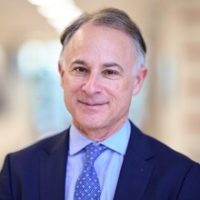
Jeffrey Lazarus
ISGlobal, Barcelona, Spain
Jeffrey V Lazarus is a full professor at the CUNY Graduate School of Public Health and Health Policy and the head of the Public Health Liver Group at ISGlobal.
His decade-long career at WHO’s European Office was followed by serving as the Vice-Chair of the EASL International Liver Foundation, Board Chair of AFEW International and as the first director of Health Systems Global. He currently serves as the director of the Global Think-tank on Steatotic Liver Disease, Chair of the Healthy Livers Healthy Lives coalition, and head of MASH Cities. He is the author of more than 450 publications, and is principal investigator of multiple global studies and clinical trials, and a work package leader of Europe’s largest liver research consortium: LiverAIM. In 2023 he was the recipient of the American Liver Foundation Distinguished Scientific Achievement award and in 2025 the American Association of Clinical Endocrinology (AACE) Public Service Award.
Mentorship format:
- Classic
Hepatology area of interest:
- Public health
Reasons why you should choose Jeffrey Lazarus as your mentor:
- Scientific guidance including research methodologies
- International networking opportunities,
- Career advice beyond the immediate liver space
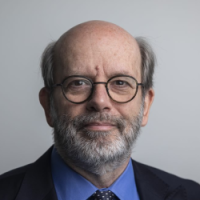
Francesco Negro
Emeritus Professor, University of Geneva, Switzerland
Emeritus Professor, formerly at the Departments of Medicine and of Pathology and Immunology, Faculty of Medicine, University of Geneva, Switzerland.
Emeritus Professor, formerly at the Departments of Medicine and of Pathology and Immunology, Faculty of Medicine, University of Geneva, Switzerland.
His clinical and research interests focus on viral hepatitis B, C, and D. He has authored or co-authored approximately 370 peer-reviewed publications addressing the pathophysiology of viral hepatitis in humans and experimental animal models, liver tissue diagnostics, and the factors influencing the clinical progression of liver disease.
He has participated in several clinical trials on the treatment of acute and chronic hepatitis C and has contributed to public health research on access to care. He served as a member of the hepatitis C and D guideline development panels for both EASL and the WHO.
In medical education, he has promoted the flipped classroom model for teaching medical students and residents, both within EASL and at the University of Geneva. He continues to lead a Journal Club at the Faculty of Medicine, focusing on the role of cognitive biases in medical decision-making.
At EASL, Professor Negro contributed for several years, including launching the iLiver application in 2012, and later serving as Educational Councillor and Treasurer.
Mentorship format:
- Classic and/or Virtual
Hepatology area of interest:
- Viral Hepatitis
- Public Health
Top reasons to choose Francesco Negro as your mentor:
- Mentorship on all aspects of viral hepatitis research, from basic science to public health
- Career counselling and guidance for young researchers and clinicians
- Promotion of critical thinking, with emphasis on cognitive biases and the culture of error in medical decision-making
- Insight into how to navigate the interface between clinical hepatology and health policy, including effective engagement with policymakers
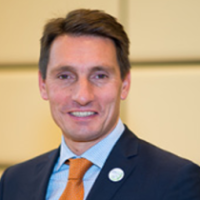
Markus Peck
Klagenfurt, Austria
Professor Markus Peck-Radosavljevic, MD MBA, is Professor of Medicine and Chairman at the Internal Medicine & Gastroenterology (IMuG) with Centralized Emergency Service (AE) at Klinikum Klagenfurt in Klagenfurt, Austria.
Prof. Peck is a graduate of the Medical University of Graz Medical School, did his research training Medical University of Graz, University of Alberta in Edmonton Canada, Baylor College of Medicine in Houston Texas, and completed his clinical training in Internal Medicine, Gastroenterology/Hepatology, Infectious Diseases, and Intensive Care Medicine at the Medical University of Vienna, Austria.
Over many years until the end of 2015, Professor Peck has been leading the Portal Hypertension, the HIV-HCV-Coinfection, and the Hepatocellular Carcinoma (HCC) Study Groups at the Medical University of Vienna. Amongst others, he has been running most HCC trials in Austria.
Professor Peck has served as Vice-secretary of EASL from 2011 to 2013 and as Secretary General of EASL from April 2013 to April 2015. He also served as the Secretary General of the Austrian Association for Internal Medicine from 2006-2014. He was member of the UEG Council between 2015 and 2021 and Chair of the United European Gastroenterology (UEG) Public Affairs Committee (PAC) 2018 – 2021. From 2011 to 2023, he was serving as President of the International Association for the Study of the Liver (IASL).
Since January 2016, he has taken over as Chair of Internal Medicine and Gastroenterology in Klagenfurt, which also includes the Centralized Endoscopy Service and the Endocrinology, the Rheumatology, the Nephrology and the Emergency Medicine service. He has set up a new Clinical trials study unit there and is running a broad range of clinical trials in various different indications, including HCC, NASH, and viral hepatitis.
Mentorship format:
- Classic and/or Virtual
Hepatology area of interest:
- Cirrhosis and its complications
- Liver tumours
Reasons why you should choose Markus Peck as your mentor:
- Career advice
- Networking opportunities
- Community hospital experience
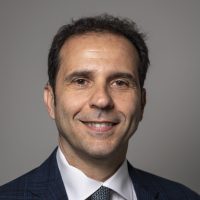
Fabien Zoulim
Padova, Italy
Prof. Francesco Paolo Russo is the Director of the Viral Hepatitis and Liver Fibrosis and Regeneration Research Groups, and he is involved in the Liver Transplant Program.
He has performed pioneering research into the underlying origin of scarring, or fibrosis associated with chronic liver disease. In particular he has showed for the first time, the contribution of the bone marrow derived cells during liver fibrosis.
Being a Physician Scientist, and thanks to the Padova Unievrsity Hospital and the Department of Surgery, Oncology and Gastroenterology (Discog) that is a state of the art research pole, he is uniquely positioned to translate scientific knowledge to the clinic.
He has been always involved in basic and clinical liver research, since he was a resident in Gastroenterology, studying the xenoperfusion of a rat liver with human blood by intravital microscopy or the possibility to support parenchymal liver cells by acellular matrix. During his Phd he performed his research in the UK at Imperial College London, with the group of Prof. Stuart J Forbes and Prof. Malcolm R. Alison and they showed for the first time, in liver transplant patients of diverse disease etiology, a circulating population of cells of recipient origin that were present within the fibrotic liver that had a myofibroblast phenotype. After Prof. Russo came back to Italy, he set up his own laboratory as PI, and during these years he kept studying liver regeneration and repair after acute and chronic liver injury in mice and human model.
Mentorship format:
- Classic and/or Virtual
Hepatology area of interest:
- Liver transplantation
- Viral hepatitis
Reasons why you should choose Francesco Paolo Russo as your mentor:
- Scientific guidance
- Networking opportunities
- Specific technical or research expertise
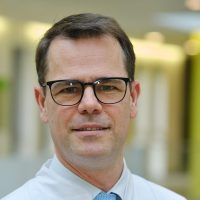
Jörn M. Schattenberg
Saarland University Medical Center
Homburg, Germany
Jörn M. Schattenberg is a Professor of Medicine and Director of the Department of Medicine II at the University Medical Center Homburg and University of the Saarland in Germany. He received his medical degree in 2002 after studying at the University of Mainz (Germany) and at the Tulane University in New Orleans (US). He completed his post-doctoral training at the Albert-Einstein College of Medicine, New York, where he focused on delineating signalling pathways involved in the pathophysiology of acute and chronic liver injury with a special focus on metabolic liver disease and non-alcoholic steatohepatitis (NASH).
He is board-certified in Internal Medicine and Gastroenterology & Hepatology and Infectious Disease. He leads the translational Liver Research Program at the University of the Saarland. His research focuses on translational sciences and clinical trials in Hepatology. He is involved in multinational, EU-funded research consortia exploring new technologies and approaches for the prevention and screening of metabolic liver disease and the development of novel biomarkers.
Professor Schattenberg is member of the Policy, Public Health and Advocacy Committee of the European Association for the Study of the Liver (EASL), a member of the Editorial Board of Hepatology and the Alimentary Pharmacology & Therapeutics and an Associate Editor of JHEP Reports.
Reasons why you should choose Jörn M. Schattenberg as your mentor:
- Clinical Hepatology and translation research focusing on mechanisms of liver injury
- Referral pathways in MASLD and other chronic liver disease
- In- and out-patient care with metabolic disease
- Interventional Hepatology including endoscopy
- Mentoring on scientific publications
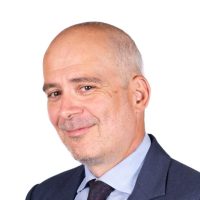
Emmanuel Tsochatzis
Royal Free Hospital, London, United Kingdom
Professor Emmanuel Tsochatzis (MD, MSc, FEBTM, FRCP, PhD) is Professor of Hepatology and Consultant Hepatologist at the UCL Institute for Liver and Digestive Health, Royal Free Hospital, London, where he serves as Head of the Centre for Metabolic Liver Disease and leads the specialist multidisciplinary service in MASLD. His clinical and research interests focus on MASLD, the non-invasive assessment of liver fibrosis, and cirrhosis.
He has designed and implemented the first two-step primary care pathway for MASLD referrals to secondary care, a model that has since shaped numerous international guidelines. He is an active member of the Baveno steering committee for portal hypertension and leads a dynamic research program with competitive funding from NIHR, MRC, EASL and the EU Horizon 2020 framework.
He has published more than 400 articles in peer-reviewed journals, with an h-index of 84, and has held prominent leadership roles within EASL, serving on the Governing Board (2019–2022) and as Chair of the Scientific Committee (2021–2022). He is currently Associate Editor of Clinical Gastroenterology and Hepatology.
Mentorship format:
- Classic and/or Virtual
Hepatology area of interest:
- Metabolism, Alcohol, and Toxicity
- Cirrhosis and its complications
Reasons why you should choose Emmanuel Tsochatzis as your mentor:
- Career advice
- Scientific guidance
- Networking opportunities
- Research expertise in Metabolism, Alcohol and Toxicity, or Cirrhosis and its complications
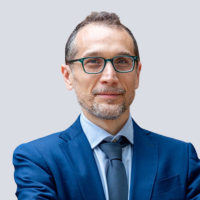
Luca Valenti
University of Milan, Italy
Luca Valenti graduated in Medicine in 2000, and Specialized in Internal Medicine in 2005 at the University of Milan. He was then fellow at the Diabetes Research Center at Columbia University, NY and the Department of Internal Medicine, University of Milan, where is now Associate Professor of Internal Medicine at the Department of Pathophysiology and Transplantation.
He manages a hepatology and internal medicine outpatient service and is head of the Biological Resource Center Unit, and of the clinical and translational research at the Precision Medicine Unit at the Fondazione IRCCS Ca’ Granda Policlinico Hospital in Milan.
His main research interests are metabolic and genetic liver diseases, application of precision medicine approaches in the field of hepatology with a special focus on metabolic steatotic liver disease and metabolic disorders. He was a member of the EASL Scientific committee and Governing Board and is Editor-in-chief of Liver International.
He authored 473 peer-reviewed papers; total impact factor = 5,276; 222 papers as main author (IF=2,534; average IF=11.4). Scholar: H-index 107, SCOPUS H-index: 90. FWCI: 5.12.
Mentorship format:
- Classic and/or Virtual
Hepatology area of interest:
- Basic Science
- Metabolism, Alcohol and Toxicity
Reasons why you should choose Luca Valenti as your mentor:
- Scientific guidance in the field of translational hepatology,
- Special focus and reasearch expertise on genetics and metabolic liver disesases
- Specific expertise in genetics, precision medicine, metabolic disorders, modelling on liver disease in human liver organoids
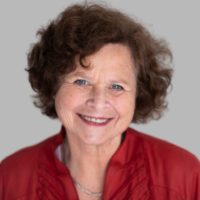
José Willemse
Patient advocate, The Netherlands
José is a patient advocate (> 30 years) with extensive international experience. For more than 10 years she was CEO of the Dutch Liver Patients Association. At the same time, she was playing a major role internationally in patient advocacy.
She understands not only the unmet needs of liver patients and impact on their quality of life but also the issues that healthcare professionals face. Her strength lies in finding the bridge between the two.
She retired in 2024, but was not ready to live a life of doing nothing.
She is a member of the EASL Policy Public Health Advocacy Committee (PPHA), ESPGHAN Public Affairs Committee (PAC), and several international advisory boards and committees like the ERDERA (European Rare Disease Research Alliance) advisory board. In the Netherlands, she supervises PhD students in the field of patient perspective and advises on applications for funding for international scientific research
Mentorship format:
- Classic and/or Virtual
Hepatology area of interest:
I view all tracks from the patient’s perspective. I am not a medical doctor, but I do know what the impact on patients is.
-
Cirrhosis and its complications
-
Viral hepatitis
-
Liver tumours
-
Metabolism, alcohol, and toxicity
-
Immune-mediated and cholestatic liver disease
-
Public health
-
General hepatology
-
Liver transplantation & surgery
-
Patient perspective in health care and research
Reasons why you should choose José Willemse as your mentor:
- Patients perspective: knowledge about unmet needs, impact on quality of life, patients empowerment, communication with patients, landscape of patients organizations in Europe (and globally).
- Role of patients organizations in research, how to integrate patients perspective in research (applications).
- Public health: information to the public, lack of knowledge, awareness programme.
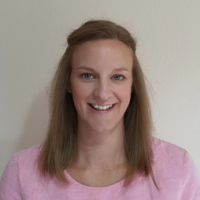
Felicity Williams
Birmingham, United Kingdom
Mentorship format:
- Classic and/or Virtual
Hepatology area of interest:
- TBC
Reasons why you should choose Felicity Williams as your mentor:
- Scientific guidance
- Networking opportunities
- Specific technical or research expertise

Fabien Zoulim
Lyon, France
Dr. Fabien Zoulim, MD, PhD is a Professor of Medicine at Lyon I University and Medical Director of the Hepatology Department at the Hospices Civils de Lyon.
His research interests focus on the understanding of viral persistence to discover and develop novel treatments to cure chronic HBV and HDV infections.
He is Director of the INSERM Unit 1350 PaThLiv “Pathobiology and Therapy of Liver Diseases” and founded the Lyon Hepatology Institute “IHU EVEREST” in 2023 (Center of Excellence label from the French Government). He is also the co-founder of the International Coalition to Eliminate HBV (ICE-HBV) and coordinates the ANRS “HBV cure” program in France.
Dr Zoulim has served as a governing board member and educational councilor of the European Association for the Study of the Liver (EASL) and as an associate editor of Journal of Hepatology. He is currently an associate editor of Gut.
He received several international awards including the Gertrude Elion Award from the International Society for Antiviral research (2023) and the Distinguished Award in HBV Research from the International HBV meeting (2022). He is a Highly Cited Researcher from the Web of Science Clarivate ranking (2021 & 2024).
Mentorship format:
- Classic and/or Virtual
Hepatology area of interest:
- Viral hepatitis
Reasons why you should choose Fabien Zoulim as your mentor:
- Scientific guidance
- Networking opportunities
- Specific technical or research expertise
Application Process
To apply, you will need to provide the following:
- A complete CV: Demonstrate your strong interest in hepatology and/or liver research.
- An abstract: Accepted at a scientific congress/medical congress/conference.
- Or a publication: Published.
- A cover letter: Detail your interest in the Mentorship Programme, explaining which mentor you would like to choose and why, and stating the objective(s) which you, the mentee, would like to achieve. Also indicate if you are interested in the Classic (face-to-face) Mentorship, the Virtual Mentorship, or if you are open to both options.
- A letter of recommendation: From a former or current supervisor or Head of Institute/Head of Department.
All applications will be reviewed by the Educational Committee and are to be submitted in English.
EASL will process the applicant’s personal data as provided in the application dossier. The applicant gives his/her consent to such control and processing of his/her personal data. EASL will handle the applicant’s personal data in accordance with all applicable legislation for the purpose of reviewing the candidate’s suitability for the Mentorship.
Conditions for Mentees
Mentorships are to begin, latest, January of the year following application and should last for one year. Extended programmes cannot be requested or accepted.
- Must be a registered EASL member.
- Should be under the age of 35 at the time of application and/or still in training. The age limit does not apply to Nurses or AHPs.
- Must not hold a permanent position.
- For face-to-face mentorships, the home institution must be European and located in a different European country from the mentor’s institution.
- No geographic restrictions apply for virtual mentorships.
- No restriction on the applicant’s nationality.
- The Mentors and Mentees are invited to attend the EASL Congress.
Previous Mentors and Mentees
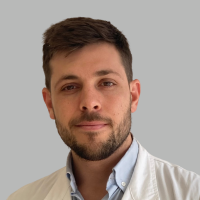
Antonio Liguori

Sven Francque
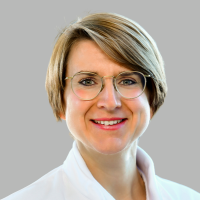
Katharina Hupa-Breier
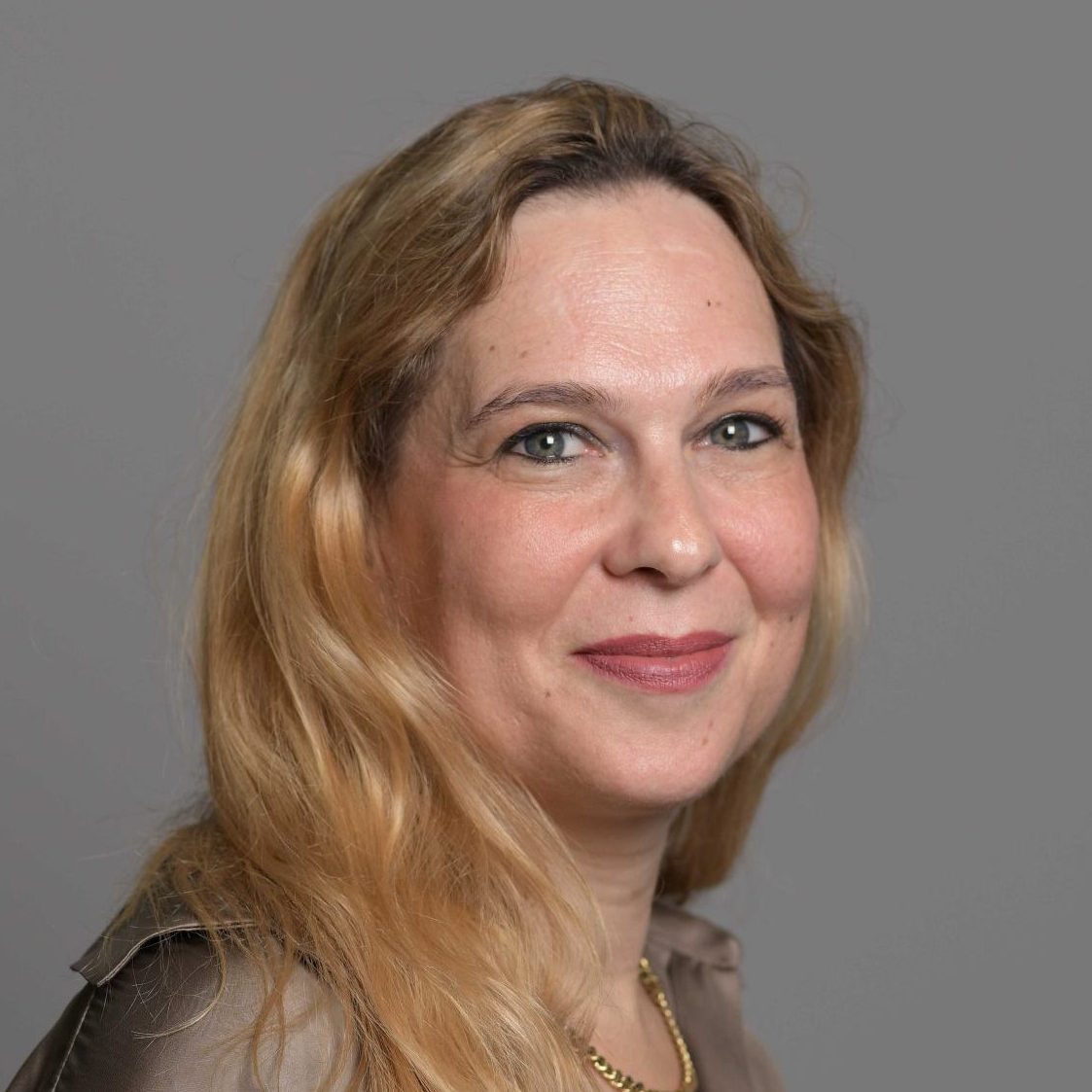
Shira Zelber-Sagi

Laurens Van Kleef
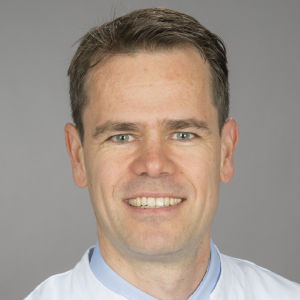
Jörn Schattenberg

Trenton White
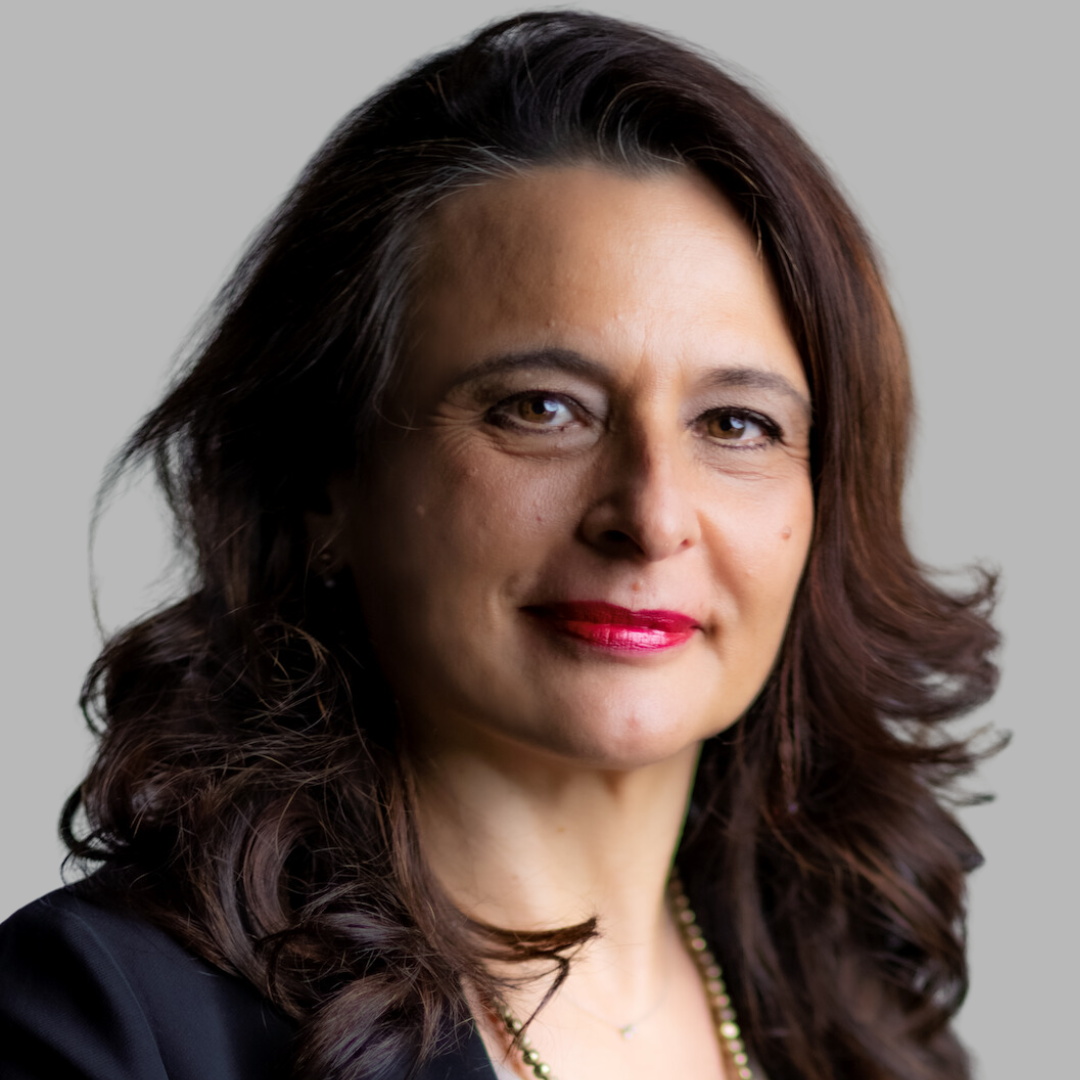
Loreta Kondili
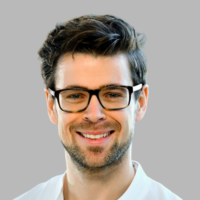
Bastian Engel
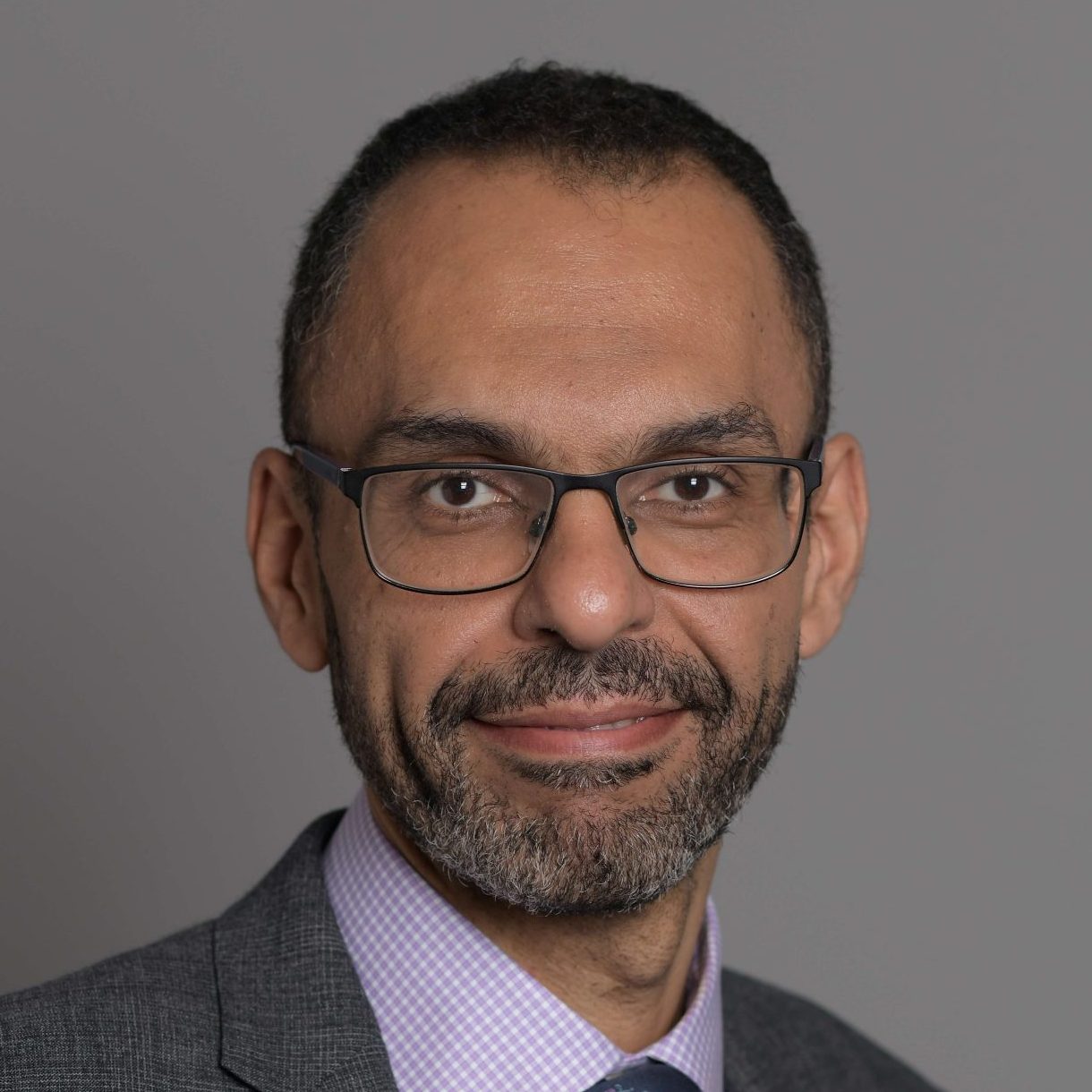
Ahmed Elsharkawy
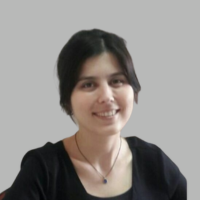
Ferya Çelik
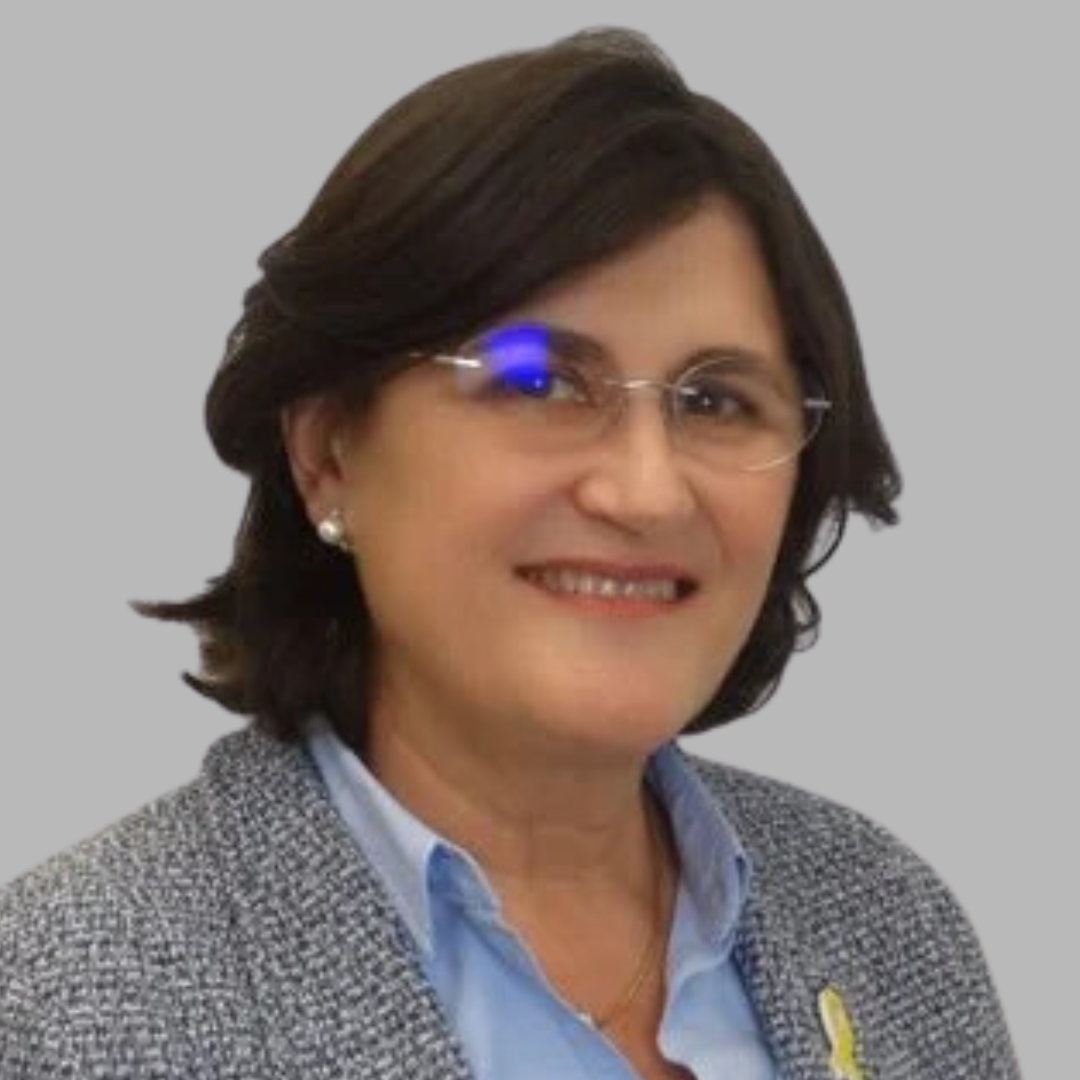
Nuria Fabrellas

Joost Boeckmans

Jörn Schattenberg

Marta Alonso
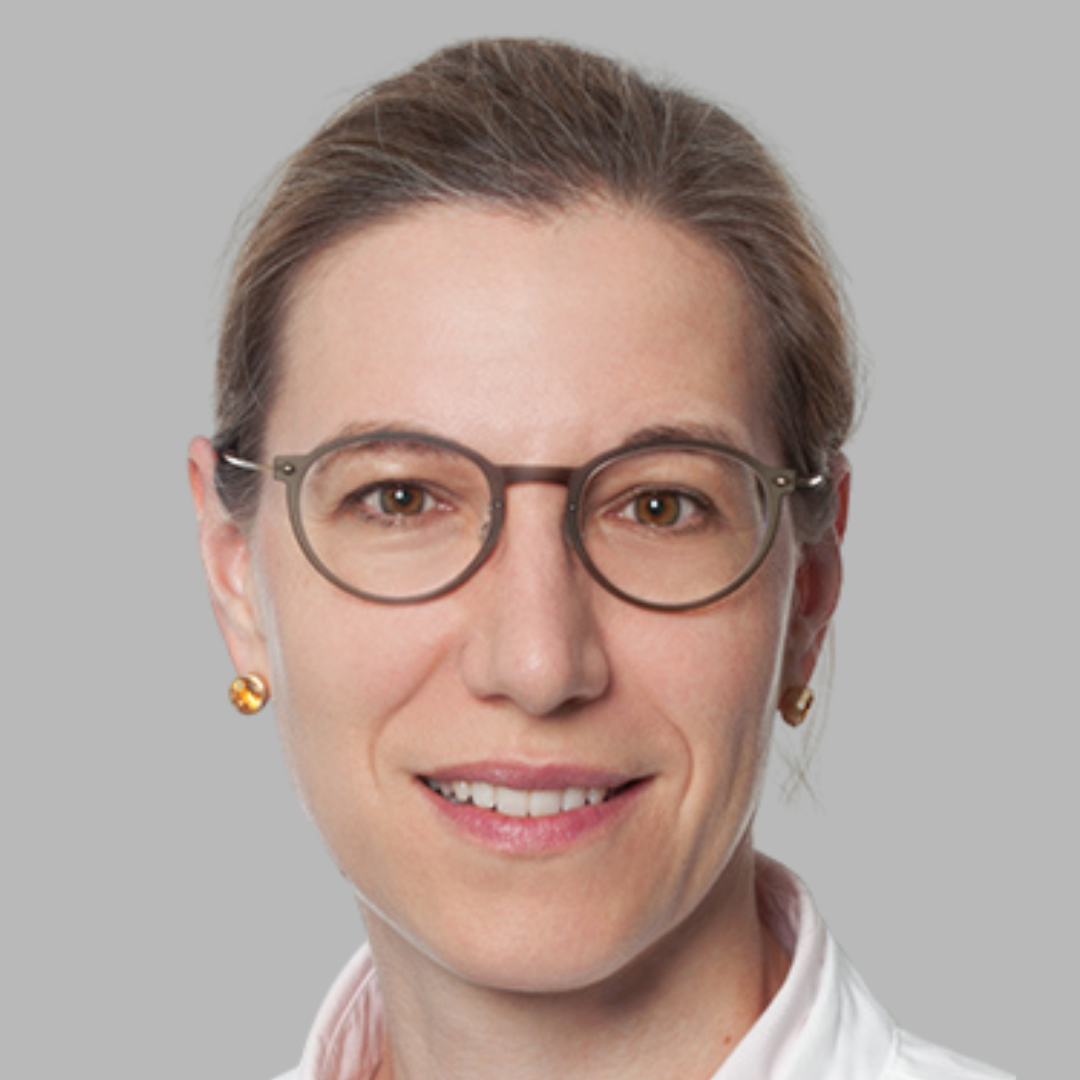
Verena Keitel
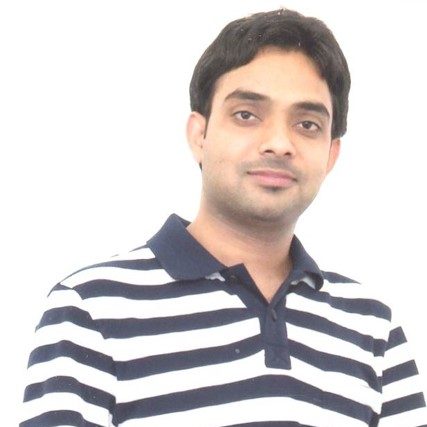
Pavitra Kumar


